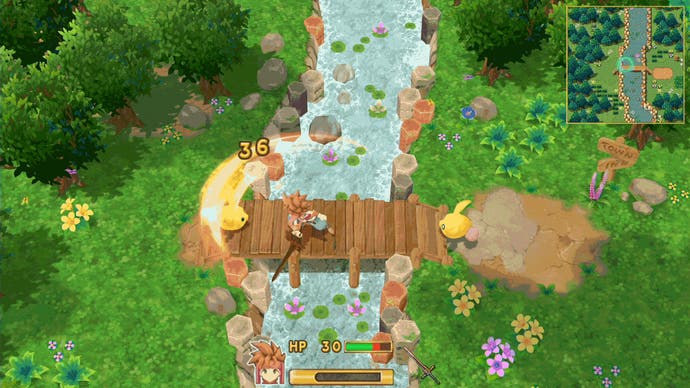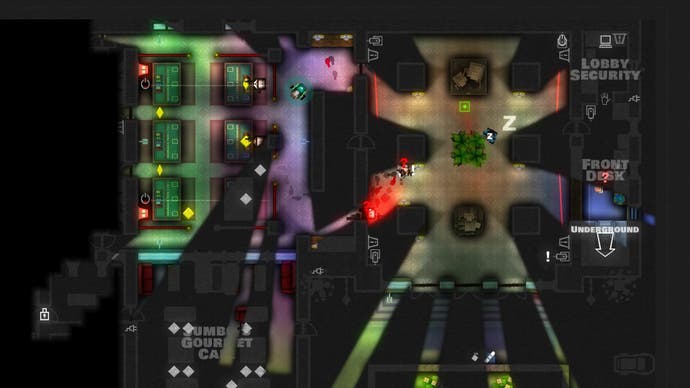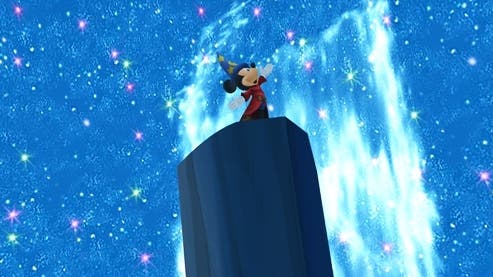We are living in a new golden age of video game music
Child of leitmotif.
More than twenty years ago, Donkey Kong Country taught me what the ocean sounds like. Its "Underwater Ambiance" is just that - drawn out, ambient sounds, melancholy minor chords and a relaxing melody at a leisurely beat. It captures perfectly what you see on screen; a level that isn't beaten through quick reactions, but by floating towards your next target and seeing where the current takes you.
In my teens, I sang my first song at a karaoke competition - it was one of Hikaru Utada's theme songs for Kingdom Hearts.
I have sat wet-eyed with nostalgia at a video game concert where my favourite music was played live to footage of someone playing the game and adapting to their choices.
As the term audiovisual medium implies, music and sound effects are inherent parts of every game. The three examples I've just given represent not only my own journey with video game music, but its steady evolution. Constant experimentation and a heightened awareness of its potential add to the feeling that right now may be the best time for video game music since the early days of the medium.
In an era of silent heroes, it put emotions on display. In a technique similar to parallel scoring, or "Mickey Mousing" in cartoons, sound effects in games were long used for actions that do and don't have sound. Thanks to Super Mario, we all know what a jump or growing in size are supposed to sound like, even when the most I usually hear when jumping is my bones creaking in protest.

We still remember so much of early video game music not only because it's attached to strong childhood memories, but because the limitations of early sound chips forced composers to go for strong melodies that were easy to hum and accompanied by simple chords. Like many pop songs, great video game music is near-impossible to forget.
With the sounds that early chips could produce came a certain creative freedom. The Secret of Mana soundtrack and its recent remaster are a perfect example for this: in its original form, we accepted the synths used, even if a lot of what we heard did not translate to any specific instrument. Replacing these wholly computer-based sounds with real instruments, however, now seems unnatural and has resulted in some unusual musical choices.
Most composers from the NES and SNES era never received any formal musical training, and yet a formal element essential to a lot of Classical music had a notable impact on video game music - the leitmotif. Leitmotifs are recognizable melodies that repeat throughout several pieces in a soundtrack and give it its red thread. One composer known for this technique is Nobuo Uematsu, who was responsible for the music in the main entries of the Final Fantasy series up to Final Fantasy 10.
Take Uematsu's "Fithos Lusec Wecos Vinosec" from Final Fantasy 8. You will hear it several times throughout the soundtrack, but always in different musical contexts. Whenever it does so, it will represent the witch Edea.
Not everything that later becomes a leitmotif has to be intended as such: several melodies from Zelda games were reused in later games to hint at Link's previous adventures.
The role of video game music changed in the early 2000s. Perhaps in an attempt to evoke a stronger cinematic feel, many games such as Metal Gear Solid and Halo came with bombastic themes. Where leitmotifs are just melodies, the smallest recognisable part of a song, themes are whole pieces that represent the entire game. Much like film, they are played early in the game or during cutscenes and credits to irrevocably link them to the game and its biggest moments.

Cutscenes and voiceover made it clear that the narrative was now guiding the music and not the other way around as before. While Final Fantasy and Kingdom Hearts are games that always had themes, rounding out the cinematic experience by giving us end credit pop songs, now more importance was placed on the theme as opposed to the entire soundtrack.
This is in part due to games becoming more and more open, requiring music to be adaptive, rather than endlessly looping like before. Music needed to be easy enough to ignore so that sudden changes like the appearance of enemies would not seem jarring to listeners. Many games from this period have great themes, such as Halo or Assassin's Creed, but music as a whole, when focused on a theme in this way, easily moves into the background.
While a lot of game music still works according to this principle, by the early 2010s, composers regularly found new ways to reflect the interactive nature of video games. Most importantly, music in these games is used as a narrative element. Austin Wintory's soundtrack for Journey doesn't part with the symphonic music games have come to love in the years prior, but it combines all the uses of music described here.
First of all, it gives narrative context to your actions and surroundings. Without its music, a lot of Journey would basically amount to flying around, but with it, you feel the triumph of sliding down sandy dunes and the unease of getting lost in the dark depths of a cave. Outside of such scripted scenes in the game, the soundtrack is given a backseat as you explore at your own speed, a faint melody your only accompaniment. Lastly, Journey's theme, present throughout the soundtrack as motif, begins and ends the game, the latter as a lovely song.
In his soundtrack for Bastion, and in fact all soundtracks for following games by developer Supergiant Games, composer Darren Korb uses song lyrics to let us into character's emotions and motivations. Every game features a character who's a musician in some capacity, making the fact that singing is used to express feelings just as natural, if not more so, as singing in a classic Disney film.

The soundtrack for Everybody's Gone to the Rapture by Jessica Curry takes this idea of furthering the narrative through lyrics by using songs as leitmotifs: "How long wilt thou forget me, oh Lord" is one of the recurring lines that hint at Father Jeremy's struggle with his faith. Every character has their own song, and you can hear the melodies and lyrics whispered to you even whenever you learn something within the game that reinforces their meaning.
There is tremendous technical effort in responsive music such as this, and a great example is Olivier Deriviére's soundtrack for Get Even. Get Even's music adapts to in-game influences in real time. It will for example match the speed of your movement. Music from sources inside the game will match your heartbeat, and music from the game's soundtrack will react to sources of noise inside the game. The orchestral soundtrack can be enjoyed on its own, but your experience of it will be fundamentally different, as the soundtrack's function is to support the game first and foremost.
As today's audiences and musicians alike grew up with video game music, it has begun to crack the public prejudice of just being 8-bit bleeps and bloops. The London Philharmonic Orchestra has released two albums of video game music. Classic.fm's Hall of Fame includes several video game tracks and has so far run two seasons of its own show dedicated to video game music, hosted by Jessica Curry. This month alone two video game-themed concerts will be held at the Royal Albert Hall.
There are still many musical styles and techniques left to explore, but rather than blindly following trends or musical predecessors, video game music keeps evolving just like the medium it serves.

